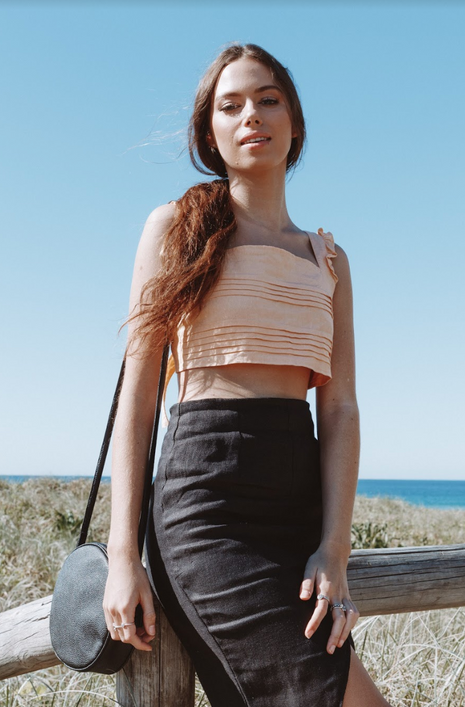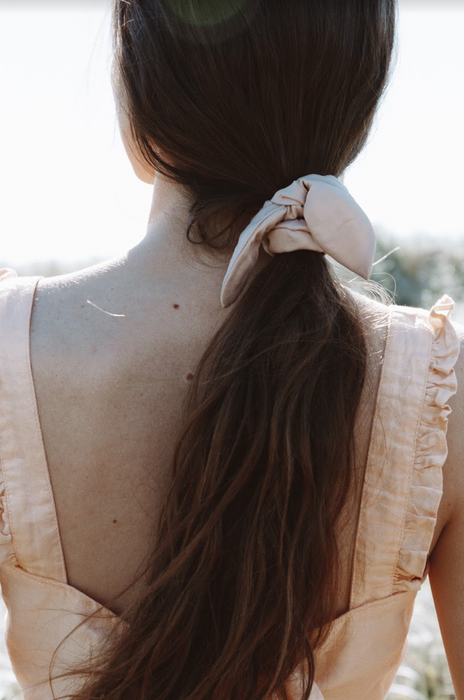FEATURE NO.2 // VELVET HEARTBEAT
- Auguste
- Oct 3, 2018
- 3 min read
Updated: Nov 5, 2018
3 October '18
Auguste
Can I just say... Australia and New Zealand know how to rock ethical fashion world. They just do! This month I spoke to the gorgeous Suzie Eggleton - designer and owner of Auckland - based Velvet Heartbeat brand which focuses on creating a wide range of bags and accessories made of deadstock and vegan leather.
Not even one year old, Velvet Heartbeat crew know what they're doing. Taking baby steps in fighting fast fashion and being a part of the fashion revolution, Suzie told us everything we needed to know about working with vegan leather and overcoming challenges of running a small sustainable fashion brand.
What is Velvet Heartbeat and how did it come to life?
Velvet Heartbeat initially started from a desire to create cruelty free alternatives to leather accessories, I had been researching ethical production for my own personal shopping choices so it quickly became a natural next step to include these values in my own brand. The core values of the brand are around the ethical impact of fashion, I felt like I had to go beyond beautiful designs and quality manufacturing and ensure that my products do no harm to animals, people and the planet. The brand is mostly just me in my little workroom with some additional helpers when required. I also love to collaborate with other like-minded businesses so we can grow together and form a cool community of people passionate about changing the industry. Velvet Heartbeat was launched in November 2017, I had a fashion blog by the same name back when I was a fashion student, I was looking for something that I felt sounded cute, cool and memorable and the name and aesthetics just stuck with me when it came time to develop the brand.
Why did you choose to work with vegan leather? What alternative textiles do you use and which ones are the easiest to work with?
While I love the look of leather and I love working with it, it doesn't match well with my personal values. I work mostly with vinyl, PU and upholstery fabrics, anything I can lay my hands on which provides a convincing alternative. My next move as a brand is working with more sustainable and eco friendly alternatives so stay tuned for some exciting developments!
I read a pretty interesting and balanced article about the environmental impact of vegan leathers versus the real thing, I think it's just down to brands and consumers deciding which options sit best with their own values. Check it out HERE!
What are the biggest challenges working with alternative leather?
I think some of the biggest challenges for me in working with faux leather are mainly around sourcing a variety of high quality options. Being a small brand located in a tiny country at the bottom of the world, it's often a challenge to find what I need but extra exciting when I do. The same goes for exploring new sustainable textiles (like mushroom and pineapple leathers), the fabrics are still reasonably new and not available openly on the market so it's about getting noticed as a small fish in a big ocean!

What is the most difficult thing when it comes to marketing and selling a sustainable, environmentally-friendly product in this fast fashion-driven consumer world?
Coming up against fast fashion is a major challenge, I think we as a society have gotten used to the feeling of need when it comes to things, without thinking how those things came to be. Once you ask people to imagine say a t-shirt getting made, the process and people behind it, and then you say it's $3 - that's quite shocking, then the price of an ethically made item doesn't seem so unreasonable. The other side effect of mass production is the waste of it all, creating more than the world needs of trendy items, then throwing it away or burning it when it doesn't sell.
So my goal as an ethical brand is to help people ask questions of the fashion industry, start valuing and treasuring fashion, and start ensuring our fashion choices don't come at an unreasonable cost to the world around us. Luckily I think people's attitudes are changing and it's really beautiful to see ethical fashion become more mainstream.












Comments